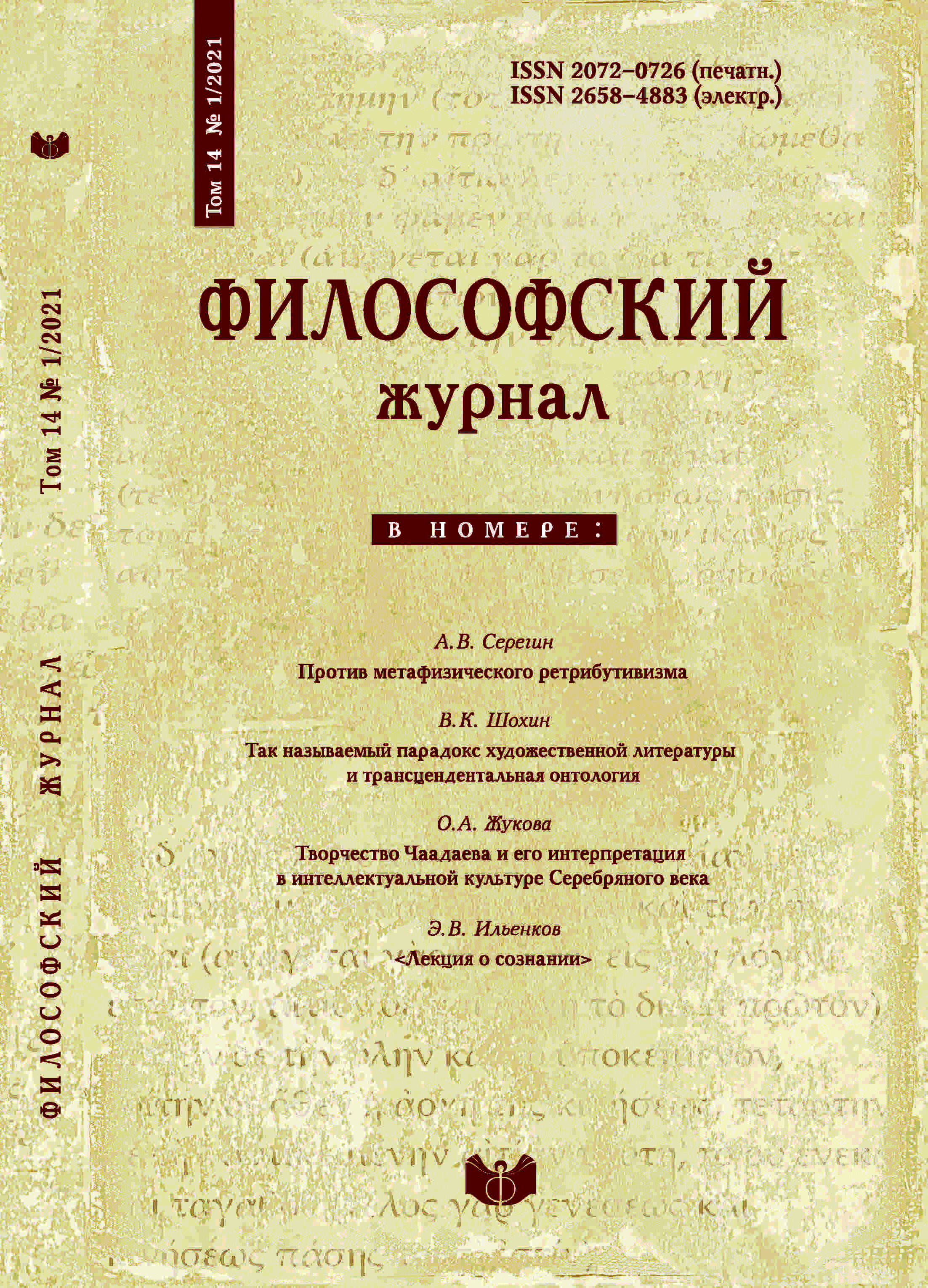Ways of transforming the metaphysical thinkingin the “conceptless language” of the late M. Heidegger
DOI:
https://doi.org/10.21146/2072-0726-2021-14-1-129-141Keywords:
Heidegger, being, language, thinking of a different beginning, “concept-free language”, moodAbstract
The article provides an analysis of the concept of “conceptless language” in the works of the late Martin Heidegger. The formation of a “conceptless language” is one of the most mysterious phenomena in the philosophy of the thinker. The specific structure of this language is one of the main criticisms of the later works of the philosopher and the opposition of Heidegger as the author of “Sein und Zeit” to Heidegger of the period “Beiträge zur Philosophie. Vom Ereignis”. The article explains the specific structure of the “concept-free language”, the reasons for its creation and its role in the late Heidegger philosophy. An attempt is made to reveal the hidden logic of a “conceptless language” and the principles by which it is guided. The search for the logic of a “conceptless language” is carried out through consideration of some of its aspects: a way of expressing thoughts, features of the style of argumentation, and a method of forming terms. An analysis of these aspects shows how Heidegger seeks to overcome the problem of the so-called “refusal” (Versagen) of the language that arose after writing “Sein und Zeit”. In search of a language corresponding to the transition to a different beginning, the principles of the late Heidegger hermeneutic methodology are formed: the “principle of intentional incomprehensibility” of terms, “default logic”, clarification of terms through their “internal form”, method of “thoughtful use of language” (besinnliche Sprachgebrauch). The analysis leads to the conclusion that the profound change in thinking, which the late Heidegger sought on the way to another beginning, is impossible without the transformation of the language. Due to the fact that the existing “metaphysical” thinking is directly related to the conceptual language, a “non-conceptual language” opens the way for alternative thinking.






